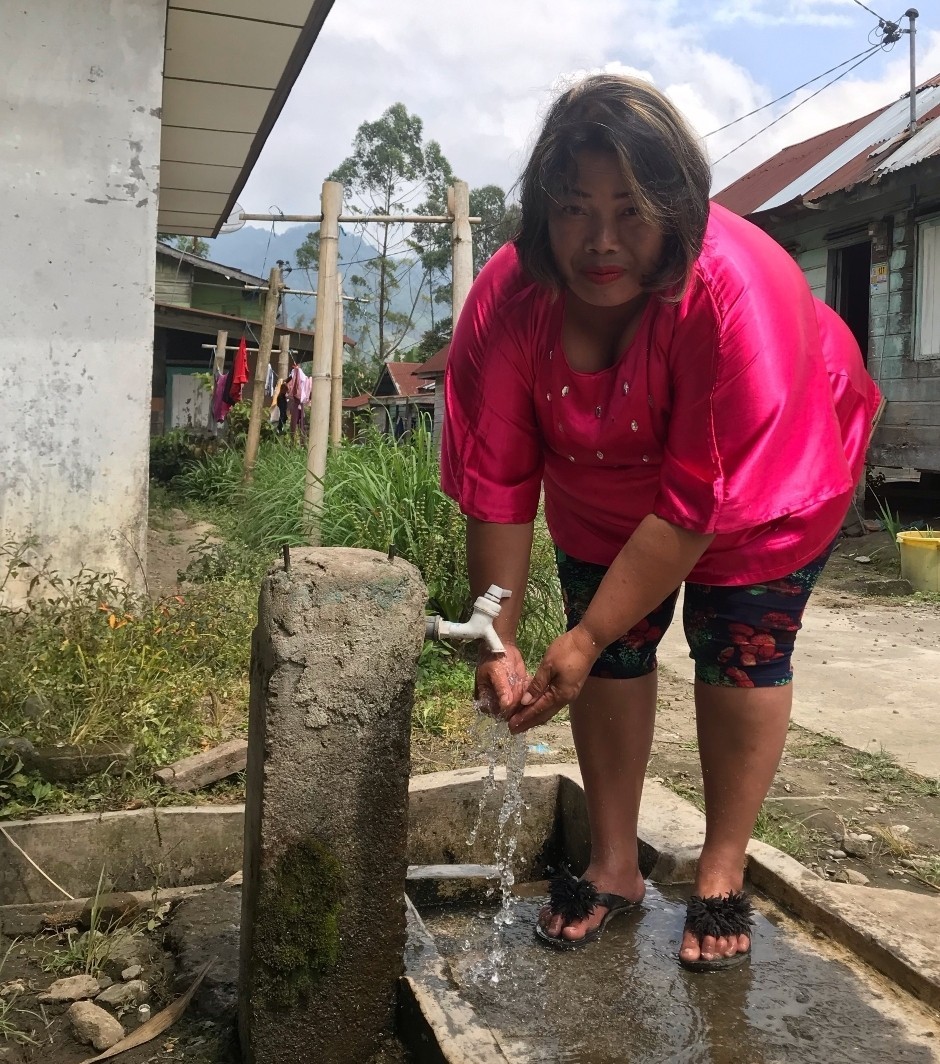Lutheran World Relief is proud to partner with The Starbucks Foundation in supporting women-led community health and hygiene programs in rural coffee-producing communities in Indonesia and Colombia.
The initiatives in Indonesia’s North Sumatra region and in Tolima, Colombia will directly reach more than 10,000 people over the next three years in efforts to promote women’s leadership, improve sanitation infrastructure and practices, and promote healthy home environments.
“We believe women are the key to long-term social change. Last year on International Women’s Day, The Starbucks Foundation set a goal to empower 250,000 women and families in coffee, tea and cocoa growing communities around the world by 2025,” says Virginia Tenpenny, executive director for The Starbucks Foundation and vice president, Global Social Impact at Starbucks. “As part of this effort, we are proud to support Lutheran World Relief’s programs in Colombia and Indonesia that connect women with training, financial resources and leadership opportunities, helping to elevate them as leaders in their communities.”
The power of promoting women's leadership
In both Colombia and Indonesia, cultural norms and traditional roles have limited the role of women in community decision-making. Providing leadership training and economic opportunities will help to amplify women’s roles in community affairs, as well as their participation in business associations.
“For many years we have had a strong focus on gender integration at the farm and community level,” says Rick Peyser, Lutheran World Relief’s senior relationship manager for coffee and cocoa. “The inclusion of women as full partners in the household has proven to strengthen resilience, productivity and farm profitability. The benefits of this focus will have a direct and positive impact on these families and communities.”
Members of the Association of Women from El Escobal (ASMUES), an organization participating in the WIN project from El Escobal, Colombia.
Colombia: The WIN Project
Colombia’s WIN (Women in Newly Emerging Coffee Regions) project will provide training for 28 youth community promoters in best practices in water and sanitation. They will in turn instruct more than 1,000 youth and farmers so they can disseminate the information to local farm families, ultimately preventing the spread of water-borne illnesses and raising awareness of the importance of healthy water resources. The project will also promote environmentally friendly water and sanitation practices through providing improved sanitation infrastructure for 86 of the most vulnerable rural households in 11 villages. These sanitation improvements include installing septic tanks to capture sewage that previously went to water sources or near houses; improvement of water networks to avoid leaks and wastewater runoff; and installing water-saving systems, such as showers that cut water use in half.
The initiative will also provide instruction in business management skills, along with access to financing, for six local women’s associations, representing 140 women. In addition, a revolving loan fund managed by a woman-led organization will provide micro-loans for approximately 80 women producers to launch enterprises such as businesses related to promoting agritourism or marketing locally produced honey.
The WIN project will promote equitable services to women producers through gender integration training and action planning for local coffee cooperatives. A gender gap analysis will identify barriers women face as coffee producers and will offer trainings that will help coffee cooperatives to improve how they serve their women members.

Nande Anggun, a midwife who works at her local Community Health Service, is supporting the Kopi Nande project by identifying women who are willing to participate in the program.
Indonesia: Kopi Nande
In Indonesia, the Kopi Nande project is working with women’s groups that are part of the Pembianaan Kesejahteraan Keluarga (PKK, or “family welfare movement”), focusing on one of the women’s groups within the PKK, Usaha Peningkatan Pendapatan Keluarga (UP2K), which has a primary focus on generating household income. The program features a series of workshops on how women can have more of a voice in their families and communities, and then build the confidence to advocate for a specific issue they identify in the village governance structure. Follow-up trainings will focus on women’s leadership, governance, management, strategic planning, Asset Based Community Development, business planning, financial literacy, and community mobilization.
Volunteers from the women’s groups will be recruited into cadres that will be trained in key water and sanitation messages, and they will spread them in their communities through monthly seminars, including in schools. The project also includes the construction of 18 community water and sanitation facilities spread across five communities as demonstration projects. These public facilities include a sanitation cubicle (with shower, toilet, washbasin, sink, and storage tank) and a public water distribution point and will demonstrate the benefit of latrines and shower facilities, while also providing more water distribution points to reach more community members and decrease travel to access water in the village.
Working through the cadres, the project will promote simple actions that can create a healthier home environment, including home-based composting, creating home gardens and improving water storage.
Finally, the Kopi Nande initiative will reduce water pollution that results from dumping the wastewater from the coffee washing process into local waterways by installing coffee bean washing stations or wet mills in each of the five villages. These stations will permit the wastewater to be processed and treated to reduce the organic pollutants before being released into local streams.
Lasting impact
We are confident this collaboration with The Starbucks Foundation will have a significant impact in these rural communities in Colombia and Indonesia, resulting in greater opportunities for women to grow their agricultural businesses for improved incomes and economic empowerment, as well as improved water quality and sanitation on coffee-producing farms that will result in healthier families.
Read the stories of two community leaders, Cecilia Valderrama Gómez in El Escobal, Colombia, and Nande Anggun in Desa Sikab, Indonesia who are helping these projects to succeed.



